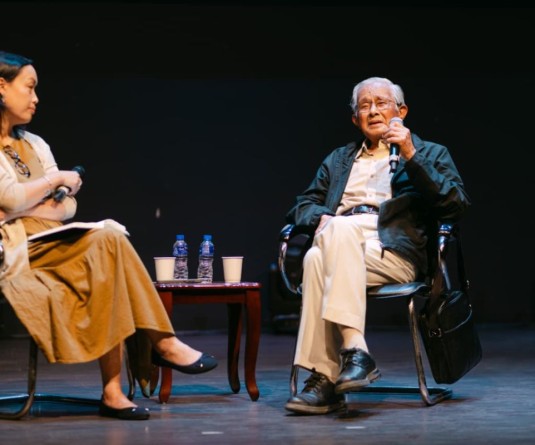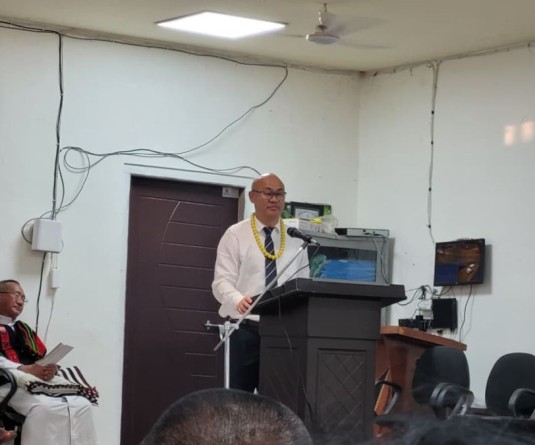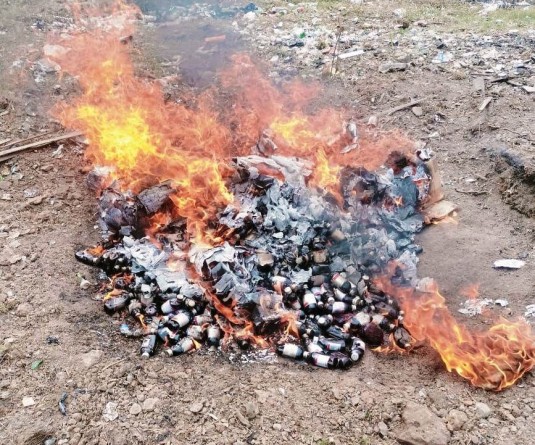
Morung Express News
Kohima | August 27
With the view to begin a process of addressing the need to reimagine a paradigm shift in aid delivery across the world amid the impact of the global pandemic resulting in overwhelming health systems crises and economic recessions, a webinar on “Reimagining International Aid in light of the crisis in the West” was presented by Organize not Agonize on Tuesday.
The panelists of the discussion were Lauren Hatvany, Founding member and former Managing Director, Mustard-seed Trust, UK; Team member, Center for Partnership Studies, USA; Co-Chair, YaGana Microfinance, Mali, Rev Tim Costello, Director of Ethical Voice Pty Ltd, Executive Director of Micah Australia, Senior Fellow of Centre for Public Christianity, Former CEO and Chief Advocate of World Vision Australia and Dr Mwalimu Musheshe, PhD (Ashoka Fellow) Founding Director, Uganda Rural development and Training Development consultant, Vice Chancellor, African Rural University, Kagade, Uganda and moderated by Neichu Mayer, Development Consultant, Israel.
As a funder, Lauren Hatvany said that “the best approach for us as an organisation and also for the beneficiary of the funding was to create a relationship based on partnership which is really the relationship based on trust.”
Reiterating this, she spoke about relationships that resulted in tremendous creativity and learning and sharing. “We grew, they grew, it was very beneficial to all”, she said. The other thing, she noted is that money is really easy to give away, wherein she emphasized on importance of how it is invested.
She further dwelt on ‘quality’ while highlighting that some that came across as successful was fueled with passion—people who are intensely devoted to their project and mission. She also asserted on “a lot of dialogue, a lot of sharing and listening to, reading the material, hearing what they are saying, comparing what’s on the ground, and seeing if they are walking their talk.”
Dr Mwalimu Musheshe spoke about how they came up with the vision and approach for the Africa development model wherein he touched upon ‘sustainability’ and people’s want for education, enlightenment, peace and freedom. He also impressed upon that people with a shared vision can transcend barriers caused by politics or religion, and that they can come together and work. “To us, that is what partnership is”, he expressed.
Stating that they have very great partnerships, he said they engage, participate, share and contribute. “In the area of co-creating, we sit together and ask each other what kind of world are we living in, what kind of countries are we living in, what kind of communities are we living in and in that kind of relationship, how to share resources, intellectual resourcefulness and also friendships”, he said.
In terms of equity, he said, “we see that we are contributing for the same cause, for the same purpose, and try to build friendship, which is beyond partnership.” Towards this end, he further added that “there is the human element on how people work together, how they share their inner selves of who they are, we meet and smile, we meet and shake hands…when we are working with the communities, we don’t look at them as recipients, we look at them as partners.”
Citing the instance of music that transcends differences in colour or language, he further added, “We bring all those into our work to enable communication, using the intangibles- music, storytelling…to have relationships with communities.”
Noting that having this conversation in these times is really important, Rev Tim Costello also shared his experiences and observations, and touched upon building relationships and communities while highlighting figures and instances. Also in response to a comment from the audience, he asserted that “what the world needs is transparency and accountability.”
Neichu Mayer, who moderated the discussion, remarked that the whole idea was to understand better how to engage people who need the money and create the linkage and the element of ‘how to create that space where we can learn from each other based on mutual trust and respect.’






